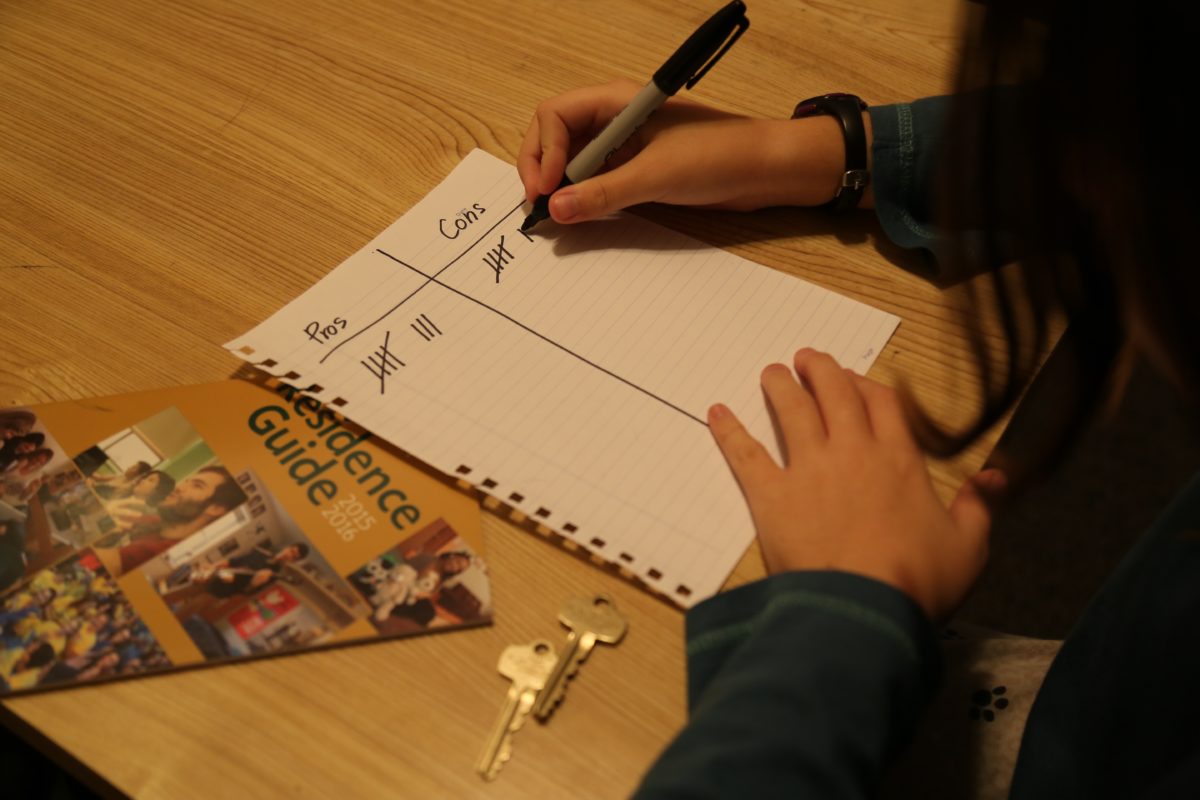University offers so many new experiences to students. Living on your own for the first time is one of them. Students face a lot of options and have to decide which is best for them.
Sam Fraser, a St. Thomas student, said, “I lived in Harrington [residence], which turned out to be more of a family than just a dorm… It was so convenient being able to leave my room and have my friends right next door.”
She said living directly on campus, made life a whole lot easier. However, the cost was another story.
“I have lived in residence for two years and now in my third year at my apartment and I find that my apartment is much more affordable,” said Fraser.
She said adding monthly bills is something you don’t have in residence but budgeting is much easier.
On-campus residences have single, double or super-double rooms available to students. Students also have the choice between on or off-campus residences.
The average yearly cost for a meal plan and room is $10,000. That’s not including tuition fees which were raised to $5,914 this year.

Shawn Goff, a third-year student, prefers off-campus life altogether. He said privacy and fast Internet make off-campus living preferable.
“Besides the food and the amount of money I’m saving, I’m also happy I’m not being watched by RAs,” said Goff.
Apartments in Fredericton range from singles to five bedrooms. They can cost between $3,585 and $10,300 per year depending on how many roommates you want to split the rent with. The option to not only spilt rent, but also bills and groceries is not afforded to students in residence.
To some students, that doesn’t really matter because they said the experience was well worth it.
Kennedy Bowden, a residence advisor for Harrington said, “It’s weird how fast the people in residence become your family.”
Alan Irvine, a residence life supervisor, said residence life comes with the advantage of having a “built-in, full-time support team.” You’re provided with residence advisors, coordinators and house committees to help you adjust.
“All of your bills are consolidated, no need to worry about cooking or dishes,” said Irvine. “Everything about residence is structured around easing the transition for students, and providing a positive living and learning environment.”
Irvine says that Residence Life offices work hard to actively engage students. They want to ensure they have a rich sense of community in their life on campus. They also provide access to on and off campus activities.
But that doesn’t mean residence life is problem-free. Irvine said he and the other staff see a lot of homesickness. “We work hard with all of our student staff members to provide a positive, supportive environment to assist in the transition.”
Bowden said many have trouble adapting to a roommate.
“For some it works, for others it doesn’t. You’re going through so much change first year and then you get thrown into a room with a complete stranger.”